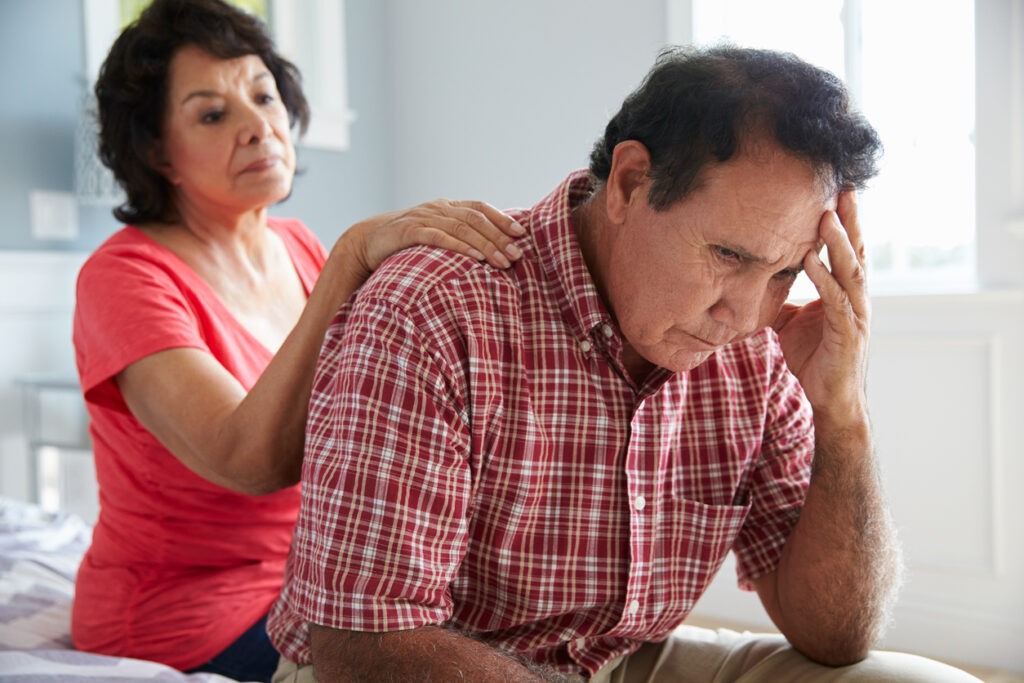If you have a loved one who is living in a nursing home or is considering moving into one and they suffer from Alzheimer’s, you may be wondering if their condition will increase their chances of being mistreated. While no one wants to consider the thought of their elderly loved one being harmed or taken advantage of, the reality is, nursing home abuse is a serious issue and one that contributes to injuries among older adults. Therefore, it is only natural to consider whether their condition puts them more at risk when they are placed under the care of nursing home staff members.
So, here’s what studies tell us.
According to the National Council on Aging (NCOA), recent studies have shown that social isolation and mental impairment such as dementia and Alzheimer’s diseases are two factors that make an older adult more vulnerable to abuse. These studies also reveal that nearly half of the individuals with dementia experienced abuse or neglect. Does this mean your aging relative will be subjected to abuse if they live in or move into a nursing home? Not exactly.
The truth is, all nursing home residents are at risk of being abused, including those who suffer from Alzheimer’s disease. But, if you place a resident in a home that is known for providing residents with substandard care, then you could be increasing their chances of being mistreated.
Now, because all nursing home residents could potentially become the victim of abuse, there are some things you can do to help prevent this from happening. The first is to make frequent visits to your loved one’s nursing home so that staff members see that you or another relative come by and check on them often. The next is to keep an eye out for signs of abuse each time you visit.
What are some signs of elder abuse?
There are many forms of abuse that can occur in a nursing home including physical, emotional, and financial abuse. Some of the signs of each type include:
Signs of Physical Abuse
According to the NCOA and the National Center on Elder Abuse (NCEA), below are some signs that might be red flags that an aging relative is being physically abused:
- Bruising, black eyes, or welts
- Pressure marks
- Fractures
- Abrasions
- Burns
- Sprains
- Medication overdose
- Sudden change in behavior
Signs of Emotional Abuse
Some signs often associated with emotional abuse include:
- Your loved one withdraws themselves from the activities they once enjoyed partaking in.
- Sudden change in alertness.
- Depression.
- They argue frequently with their caregiver or another older adult.
- They complain that staff members threaten or belittle them.
- They display unusual behavior.
- They are emotionally upset or agitated.
Signs of Sexual Abuse
- Bruising around the breasts or genital area.
- Genital infections.
- Vaginal bleeding that cannot be explained.
- Complaints from the resident that they are being sexually abused.
- Torn, stained, or bloody underclothing.
Financial Abuse
If you notice a change in your loved one’s financial situation or notice certain property of theirs is missing, it could be a sign that a worker or someone else at the facility is taking advantage of them financially.
Who can be guilty of abusing an older adult in a nursing home?
- A nursing home staff member.
- Nurses or other health care workers.
- Visitors.
- Other residents.
Now, because Alzheimer’s generally impacts a person’s memory and causes them to be confused, they may not remember an incident or cannot recount all of the events that led up to one occurring. This can make it especially difficult for family members to determine whether their aging relative is being cared for properly or if they are being respected by staff members and other residents. It is for this reason and many others that you must stay active in your loved one’s life and stay on top of their care.
What should I do if I think my loved one is being mistreated by nursing home staff members?
If your loved one has informed you that they aren’t being cared for properly by nursing home staff members or you have noticed signs of one or more types of abuse during your visits with them, we encourage you to discuss this with a Chicago, IL nursing home abuse lawyer. Dinizulu Law Group, Ltd. is a nursing home abuse law firm located in Chicago that can help you understand what your relative’s legal rights are if they are a victim of abuse and what we can do to help.
In the event we determine you have a valid abuse complaint, we can help you push for criminal charges to be filed against the abuser and even sue the facility for the pain and suffering your loved one endured. If you would like to learn more about holding a nursing home and/or worker liable for abusing your aging loved one, contact our firm today at 1-312-384-1920.
You can contact Dinizulu Law Group, Ltd. at:
221 North La Salle Drive, Suite 1100
Chicago, IL 60601
Phone: 1-312-384-1920
Website: www.dinizululawgroup.com



